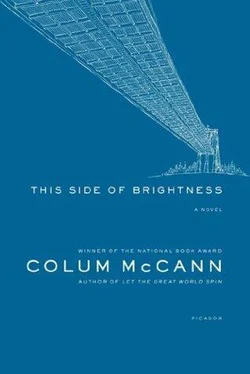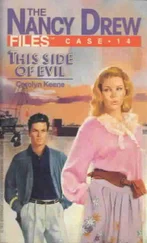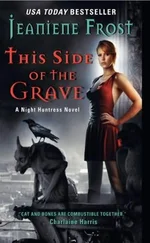“I suppose you’d rather see me on the street.”
“Momma.”
“My own son. Putting me out on the street.”
“I wouldn’t do that.”
“Then how am I s’posed to get medicine?”
He sighs, hangs his head.
“Did you know that the imprints of bird feet—”
“Momma.”
“—are the perfect thing for making peace symbols?”
“You’re high, Momma.”
“They are, though, they’re perfect.”
“You’re talking crazy shit, Momma.”
“You draw a little circle around them. Think about it. I’ll show you. A perfect circle. Like this.” She makes a circle with her finger against his rib cage, scrapes three lines like a bird print within the circle, cocks her head sideways, says, “Don’t put me out on the streets. Please. I know too much to be on the streets. You know how I feel about losing your father.”
Clarence Nathan reaches under the mattress where he keeps his money and palms her a neatly folded twenty-dollar bill. She smiles, shoving the bill into the opening at the breast of her blouse.
“I won’t never forget it,” she says.
She leaves after kissing him fluently on the forehead. He slams his fist into the palm of his hand.
Clarence Nathan sleeps on the fire escape; he has been told that his father used to do this. He is not bothered by the noise from below: police sirens, record players sounding out through open windows, Jimi Hendrix, James Brown. His body is squeezed up in the small space, his forearms wrapped around his knees. Sometimes the night is punctuated by gunshots. Or the blare of a musical car horn. Or couples shouting as they lean out of windows. A landscape of loving and hating. A palpable viciousness in the air. And yet a tenderness too. Something about this part of the world seems so alive that its own heart could burst from the accumulated grief. As if it all might suddenly stumble under the gravity of living. As if the city itself has given birth to the intricacies of the human heart. Veins and arteries — like his grandfather’s tunnels — tumbling with blood. And millions of men and women sloshing that blood along the streets.
Clarence Nathan has often wondered what it might be like to have acute hearing, to listen to that blood slapping against the skinbanks of bodies, that symphony of misery and love.
Down below, he can see his mother passing under the flitting light of street lamps, and she looks so thin, with her arms wrapped around herself, shivering, that her slacking flesh seems to make her retreat into the girl she must once have been.
* * *
A few weeks later he is slinging chokers on the beams, on ground level, when word comes that there’s a phone call for him near one of the ironworkers’ shanties. He walks across the site, tapping out a rhythm against his thigh.
“It’s your momma,” Walker says. “Come on back.”
The door to the apartment opens before he knocks. Clarence Nathan’s eyes dart around the room. The gutted piano sits with its lid open. The couch is propped up against the window. A few wicker chairs are forlorn in the middle of the room, their top netting unraveling. Walker rises and grabs his grandson by the lapel and punches him, a slow punch, no power. But the young man falls backward onto the floor.
“Ya didn’t keep your promise, son.”
Clarence Nathan puts a finger to his mouth.
“Take a seat,” Walker says.
“Where’s Momma?”
Walker shakes his head.
“Where is she?”
“I knew it was gonna happen,” says Walker.
“What?” The young man pulls his knees to his chest and hugs his feet. “Where is she?”
“Get up off the floor.”
The young man rises, looks around the room, begins to cry, says, “I gave her all that money.”
“It don’t matter no more. When it’s over, it’s over, ya gotta accept that. It’s over.”
“It’s over,” says Clarence Nathan, not thinking about the words.
“Come on, give me that hand of yours.”
Clarence Nathan stretches out one hand and Walker lays his own shaking hand upon it. “Let’s say us a prayer.”
After a few minutes’ silence, Walker says, “I’m sorry I hit ya, son.”
The old man adjusts himself on the couch and takes a little tobacco from the pouch around his neck, stares at it, counts the grains. “Aw, shit,” he says eventually. He wipes at his eye, tries to drink from a teacup he knows has been long empty. “I was hoping she’d give it up.”
Clarence Nathan looks out the window. “It’s my fault. I gave her the money.”
“Don’t be feeling sorry for yourself, son. She done it to herself. That’s the worst thing a man can do. Feel sorry like that.”
Walker struggles up, dries his eyes, crosses the room.
“We gotta go down the funeral parlor. Make arrangements to get her back to South Dakota. She needs to be near that lakeside she talked ’bout.”
Clarence Nathan closes the buttons on his grandfather’s overcoat, helps him wrap a scarf around his neck, bends down to tie the old man’s shoes. They triple-lock the door and walk together down the stairs. Clarence Nathan steadies Walker as the old man holds on to the banisters. They emerge into sunlight. Clarence Nathan, still crying, removes his baseball hat and puts it on Walker’s head so the brim shades the old man’s eyes.
* * *
In Saint Nicholas Park on a mucky day, he shows Dancesca the trick of making a symbol from the foot of a bird. “See,” he says. “See. Draw a circle here. Just like this.”
* * *
Treefrog wakes in the rear cave when a rat scuttles across his ankles. He draws his knees to his chest and whistles for Castor, but she is not around. He wonders if it is night or day, if he has been dead or if he has just been asleep, or if he has been both, and if he may be both forever, dead and sleeping.
He lights another candle and tucks his maps back into their plastic bags. Rocking back and forth in the dark dampness, he waits for the sound of a train to tell him whether it’s morning or night. No trains between midnight and seven; after that, the Amtraks come every forty minutes. He singes the bottom of his beard with the lit candle, feels the heat at his chin, and waits almost an hour, curled into himself, his stomach rumbling. Nothing, so it must be night. He drops hot wax on the back of each thumb, where it hardens quickly. Then he presses his fingers into his left side to balance the pain in his liver. He still has some money left from Faraday’s funeral and he wonders, perhaps, if he should go and buy gin.
He moves out of the cave into his front room and feels drawn by the tunnel, swings down.
No light whatsoever. The purest and pitchest of black. Treefrog passes by Dean’s pile of trash and smells the human filth, steps away so he doesn’t get shit on his shoes.
Treefrog knocks against the baby stroller, full now with garbage. He stops and stares into the carriage, reaches out, and rocks it a little from side to side: it was the summer of 1976. Lenora was just born. She was so small. Her hair was fine and thin and dark. Her skin was smooth and mahogany. Clarence Nathan felt like his world had shifted equators, given him meaning, history. He spent hours just holding her. She would lie across his stomach and kick her tiny feet in the blankets. Dancesca lay with them. There was a new quality given to time — sometimes hours would slip away in simple staring at the child. They felt whole, full, brave, assured. Lenora’s helplessness was their depth. They moved together in a trinity, he, Dancesca, Lenora. Every Sunday he paid for a taxicab so that Walker could come and visit. They sat and watched baseball games together. The child slept on a cot close by. It was a time of sweet slowness, even when Lenora fussed and cried. One Sunday, Walker lifted Lenora out of her cot. He kissed the child’s forehead. He took her into the bathroom, where he had already filled the sink with warm water. Clarence Nathan watched. The old man was going to baptize the child — a mixture of his own religion and the history of Eleanor’s. Just before he lowered the child gently down into the sink, Walker whispered something in her ear. For a moment all was silent, and he dipped the baby in the water. The child cried a little, then stopped. Walker came out from the bathroom with a warm blanket wrapped around her. Later, he said, “I’m gonna bring Lenora for a walk.” Dancesca and Clarence Nathan watched from the window as the old man stepped into the street, pushing the baby carriage. By the side of a fire hydrant, Lenora’s pacifier dropped out. Walker bent down and, with difficulty, picked it up off the ground. The rubber end was dirty. He looked around for a moment, seemed confused. Then he stuck the pacifier in his own mouth to clean it. He bent over, gently inserting the nipple in the child’s mouth, and whispered something into Lenora’s ear. From his distance, Clarence Nathan knew exactly what his grandfather was saying to the child.
Читать дальше












